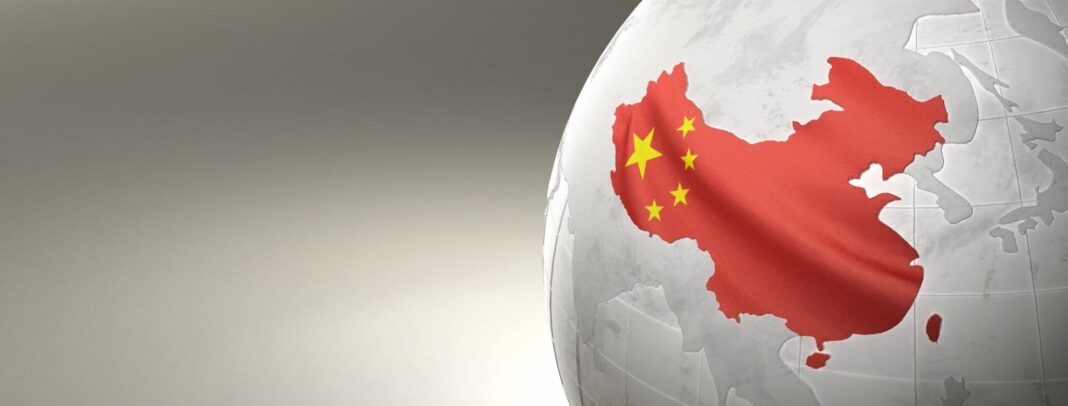After China’s most powerful leader Deng Xiaoping introduced a free-enterprise system and reforms into the country’s economy in the 1980s, his successors Jiang Zemin and Hu Jintao gave further momentum to the country’s growth. Under President Hu Jintao’s two-five-year term, China’s average growth remained around 10%–a spectacular performance that saw the country’s development in almost all sectors.
But today, China under President Xi Jinping is faltering economically, politically, and diplomatically. It is struggling to keep the gross domestic product growth rate in the 4-5% range in 2024 to “vigorously” promote investment, said Financial Times. Import of Chinese goods to the American market declined by more than 20% in the January-November period, according to the US Commerce Department data released recently.
It will see further decline in days to come as the Joe Biden administration is considering further tariff hikes on electric vehicles, solar power equipment and less-advanced semiconductors, Nikkei Asia said. The Biden administration already continues to maintain high tariffs on Chinese products imposed during the presidential term of Donald Trump. Trade with the European Union has also witnessed no major progress. Instead, its export to the 27-European country bloc fell by 14.5% year-on-year in November, according to CNBC.
Ratings agency Moody’s has already cut its outlook on the Chinese government credit ratings to negative from stable, while projecting its annual GDP growth to be 4.0% in 2024 and 2025 and to average 3.8% from 2026 to 2030, Reuters said.
Crisis-ridden real estate, flagging exports, declining foreign investments, record youth unemployment and towering local government debt have pushed the Chinese economy into the sinkhole of problems. As a result, China is fast losing its place as a must-have in global portfolios as some of the world’s biggest funds have begun to distance themselves from the risk-ridden Chinese market.
According to Bloomberg, 14 US pension funds with investments in Chinese stocks have reduced their holdings since 2020. The California Public Employees’ Retirement System and New York State Common Retirement Fund, which are America’s biggest pension investors, have cut their exposure to the Chinese market for a third straight year.
Yet China tries to read the other side of the coin. “Since the beginning of this year, China’s macroeconomy has seen a sustained rebound and steady progress in high-quality development. New growth drivers of China’s economy are delivering results. China is capable of deepening reforms and addressing risks and challenges…Concerns expressed by Moody’s over China’s economic prospects and fiscal sustainability are unnecessary,” China’s Foreign Ministry Spokesperson Wang Wenbin said.
Nikkei Asia’s analysis of the ground situation in China has exposed this claim by Beijing. Less than two weeks after returning from his trip to the US for the Asia-Pacific Economic Cooperation meeting, Chinese President Xi visited Shanghai for the first time on November 28, the Tokyo-based financial daily said. It added that through the high-voltage visit of President Xi to Shanghai, an optics of positivity was created through the media. Yet the market remained unaffected by it.
“Xi’s inspection tour of Shanghai drew almost no market reaction, despite the notice given out beforehand. Even the state-owned enterprises that the government has been supporting to make them bigger did not respond by buying stocks enthusiastically,” Nikkei Asia said, adding that on December 5, Shanghai Composite Index dropped below the threshold of 3,000.
This signalled ebbing away of strength that the Chinese market once commanded in the world. Unless external demand picks up, the supply side will struggle to make inroads into the reigniting market in China, feel analysts. However, after a decline for six months in a row, exports in US dollar terms rose 0.5% in November, according to data from China’s General Administration of Customs. Still, it is not clear if the momentum would remain sustained as imports dropped in November on account of lacklustre domestic demand.
Then whatever hopes were there from the California summit between President Xi and US President Joe Biden that too got dissipated. The Chinese President and the US President held their first ever in-person meeting in California on November 15 since last year they met in Bali on the sidelines of G-20.
There were high hopes from the meeting among Chinese authorities on the trade front, especially the supply chain issue. But the meeting between Xi and Biden in California “saw no developments in the most important issue for China: supply chain disruptions,” Nikkei Asia said. The US and the European Union continue to withdraw their investments out of China.
As per a recent report by Rhodium Group, the US and European greenfield investments dropped to less than $20 billion in 2022, from a peak of $120 billion in 2018. Diversification is well underway,” the US-based research organisation was quoted by Reuters as saying. Even Hong Kong witnessed a decline in investments from the US. In comparison to 2021, the city saw a 3.3% decrease of FDI from the US, said the Office of the US Trade Representative.
In this backdrop, Yuhan Zhang, who is a political economist at the University of California, through his column in Financial Times, has tried to give some suggestions to the Chinese government on the “critical” economic situation of the country. As China “seeks to direct the nation’s economic trajectory, the central government should strictly control the increase in local government bond issuance. It should provide large-scale funds, for example in the form of special national debt, to support broad-based infrastructure investments as well as those in high-tech,” he suggested.
In the long run, Yuhan Zhang said Chinese leadership needs to have a “robust political will and vision that not only aims at immediate growth but also sustainable, inclusive development.” But so far given the ground situation in China, it doesn’t appear that Beijing will endeavour for any transformative shift in its economy in the immediate future.
financialpost.us

